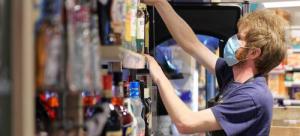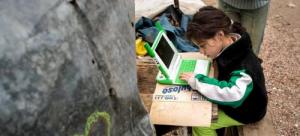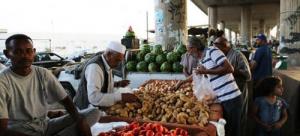‘Lockdown generation’ of young workers will need extra help after COVID-19, urges UN labour chief

The COVID-19 pandemic is likely to have a disproportionate effect on young workers according...
‘Business as unusual’: How COVID-19 could change the future of work

Working from the office could become a relic of the past in the post-COVID-19 world.
Human development backslides, education at global levels ‘not seen since the 1980s’

Young girl in Uruguay uses her laptop to study at home.
Post-pandemic ‘green shift’ in transport could create up to 15 million jobs

A bus driver in New York City wears a mask to protect himself against the Coronavirus.
Workers and COVID-19: Access to healthcare, now ‘a matter of life and death’

A worker cleans finished wood flooring in a factory in Zhejiang, China.
Coronavirus ‘grim reality’: World economy to shrink by 3.2 per cent, new UN report projects

Shoppers at a market in the Libyan capital Tripoli.
Tonga: US$8.4 million to strengthen resilience and fight COVID-19
The World Bank’s Board of Executive Directors has approved a US$5.5 million operation for Tonga to strengthen public financial management, enhance Tonga’s resilience to the effects of climate change, and improve access to skills training and both...
Senior UN official calls for universal basic income to tackle growing inequality
The COVID-19 pandemic is not only a health crisis, but it is also proving to be an economic disaster for huge numbers of people worldwide. A senior UN official with the UN Development Programme (UNDP) is calling for countries to provide citizens with...
Nearly half of global workforce at risk as job losses increase due to COVID-19: UN labour agency
Some 1.6 billion people employed in the informal economy – or nearly half the global workforce - could see their livelihoods destroyed due to the continued decline in working hours brought on by lockdowns to curb the spread of COVID-19, the...
Ethiopia has Made Major Strides in Poverty Reduction but Disparities, Inequality Remain
Poverty reduction in Ethiopia continued despite adverse climatic conditions, with the share of the population below the national poverty line decreasing from 30% in 2010/11 to 24% in 2015/16, according to a new World Bank Group poverty assessment....











